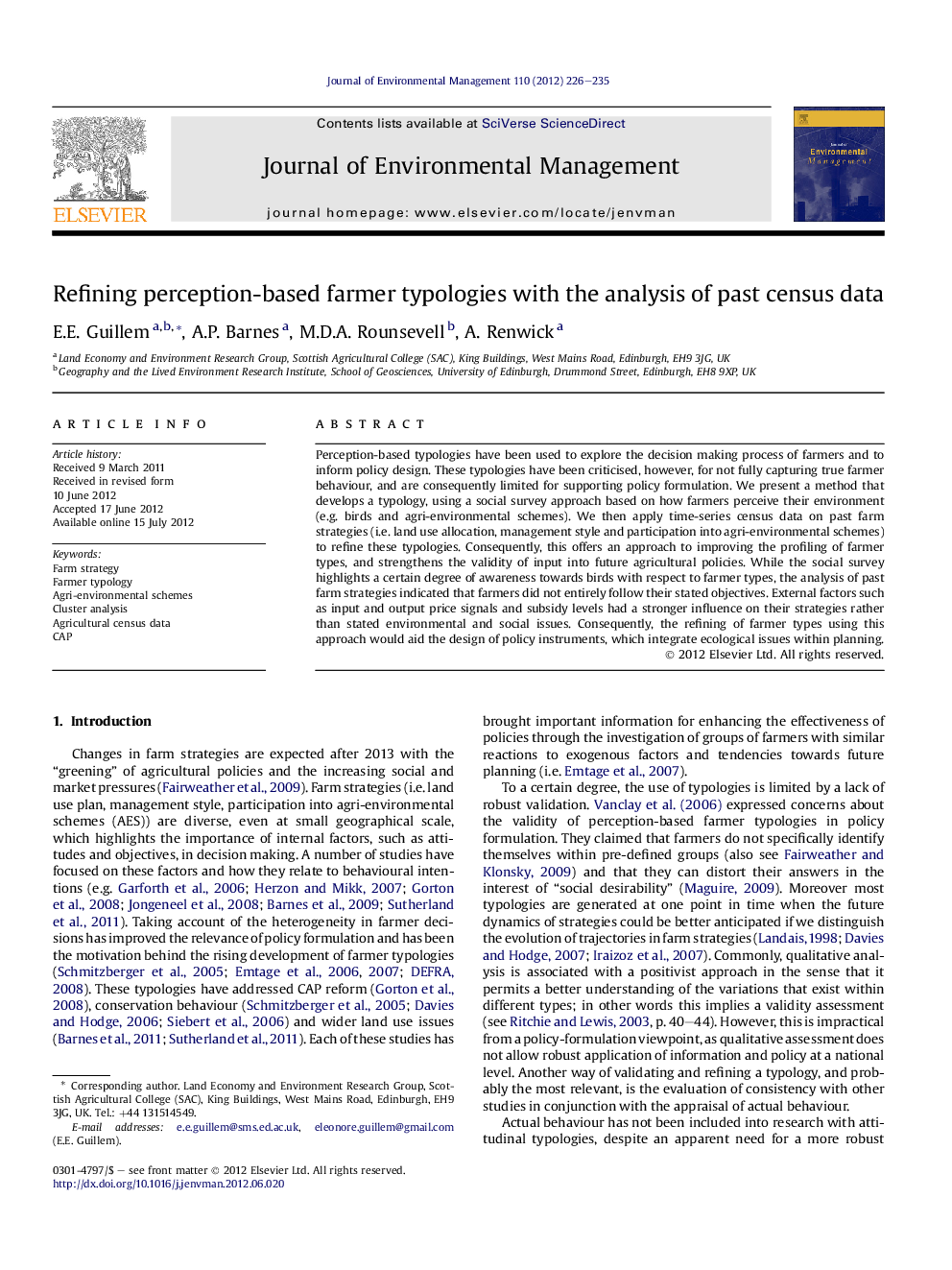| Article ID | Journal | Published Year | Pages | File Type |
|---|---|---|---|---|
| 1056523 | Journal of Environmental Management | 2012 | 10 Pages |
Perception-based typologies have been used to explore the decision making process of farmers and to inform policy design. These typologies have been criticised, however, for not fully capturing true farmer behaviour, and are consequently limited for supporting policy formulation. We present a method that develops a typology, using a social survey approach based on how farmers perceive their environment (e.g. birds and agri-environmental schemes). We then apply time-series census data on past farm strategies (i.e. land use allocation, management style and participation into agri-environmental schemes) to refine these typologies. Consequently, this offers an approach to improving the profiling of farmer types, and strengthens the validity of input into future agricultural policies. While the social survey highlights a certain degree of awareness towards birds with respect to farmer types, the analysis of past farm strategies indicated that farmers did not entirely follow their stated objectives. External factors such as input and output price signals and subsidy levels had a stronger influence on their strategies rather than stated environmental and social issues. Consequently, the refining of farmer types using this approach would aid the design of policy instruments, which integrate ecological issues within planning.
► Four farmer types were generated based on attitudes towards birds and farming objectives. ► Time-series census showing past behaviour does not correspond with attitudes and objectives. ► Market prices and subsidies have stronger influence on farm strategy. ► Financial reward for agri-environmental management should be increased.
